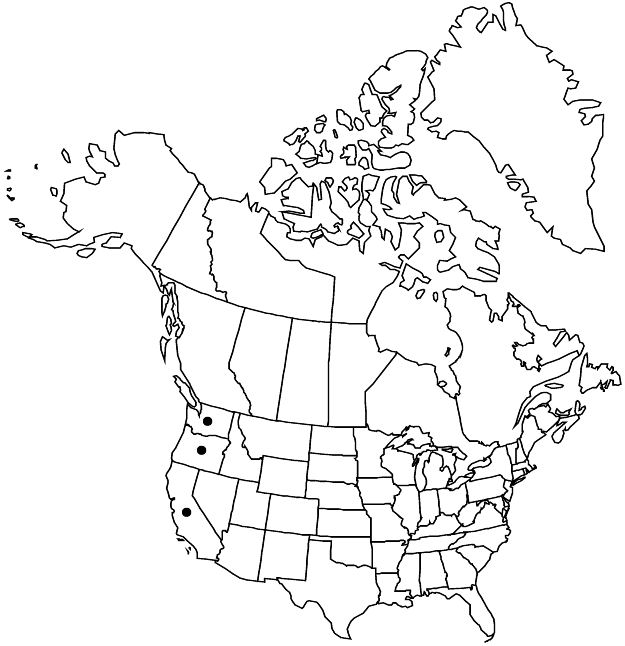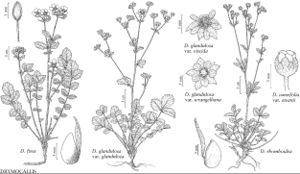Drymocallis glandulosa var. wrangelliana
J. Bot. Res. Inst. Texas 1: 43. 2007.
Stems (1–)2–7 dm, base 2–5 mm diam. Leaves: basal (5–)10–30 cm, leaflet pairs (2–)3–4; terminal leaflet broadly obovate, (2–)3–7 × 2–5 cm, teeth double, 9–17 per side, apex usually rounded, rarely obtuse; cauline well developed, leaflet pairs 2–4. Inflorescences (3–)5–30-flowered, ± to very leafy, wide, branch angles (15–)30–55°. Pedicels 1–5 (proximal to 30) mm. Flowers: epicalyx bractlets ± elliptic, (3–)4–7 × 1.5–2.5(–3) mm; sepals spreading, 5–11 mm, apex round-obtuse, mucronate; petals spreading, usually cream-white, sometimes pale yellow, broadly ovate or obovate, (4–)4.5–6.5 × 3–5.5 mm; filaments 1–2 mm. Achenes 1.2–1.5 mm. 2n = 14.
Phenology: Flowering Mar–Jun.
Habitat: Openings, moist and/or ± shaded places in coastal scrub and woodlands
Elevation: 0–1000 m
Distribution

Calif., Oreg., Wash., Mexico (Baja California).
Discussion
Variety wrangelliana is provisionally resurrected for the coastal extreme with exceptionally leafy inflorescences and relatively large, most commonly cream-white petals.
Selected References
None.
